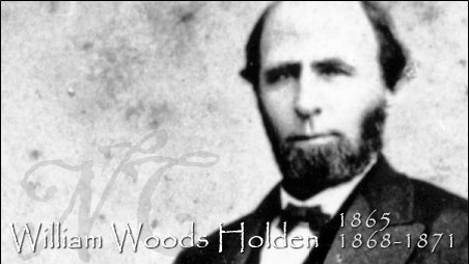RALEIGH, N.C. (AP) -- North Carolina lawmakers took a step Tuesday toward clearing a Reconstruction-era governor removed from office 140 years after he was impeached in part for trying to stop violence from the Ku Klux Klan.
The state Senate voted 48-0 in favor of the pardon of Gov. William Woods Holden, who was impeached in 1870 by the House and convicted by the Senate in a trial a few months later.
The Senate voted during a legislative session inside the old Capitol building in Raleigh where lawmakers at the time officially removed him from office. The General Assembly now meets one block away, but decided to take up the pardon resolution on the same day the Legislature gathered in historic surroundings to remember a North Carolina document from 1776 urging the colonies' independence from England.
The House has to approve the resolution for it to become official. House leaders didn't plan to take up the resolution Tuesday, a spokesman for Speaker Thom Tillis said.
Holden, a Republican, was impeached in 1870 after he ordered a militia to quell activity by the KKK in Alamance and Caswell counties following the slayings of both black and white residents, including a Republican senator. He was convicted by the Democratic-controlled Senate in March 1871 on six counts following after a seven-week trial, making him the first governor removed from office in the United States. The Republicans returned to power in the Senate the first time since in January.
A pardon vote got sidetracked three weeks ago when a staff member placed a document on senators' desk questioning whether Holden deserved to be cleared, in part by citing an early 20th-century historian. A House member's assistant acknowledged he distributed the unsigned document, saying people deserved to examine different perspectives on Holden.
Some local residents where the militia was brought in also have emailed legislators opposing the move, saying Holden trampled upon the due process rights of people he jailed.
Senate leader Phil Berger, R-Rockingham, said senators also wanted assurances the Legislature had the power to pardon someone such as Holden.
It does address what a lot of historians feel was something that was a wrong in our history, Berger said. The Senate in 1871 is the body that took that action. The Senate in 2011 is the body that will undo that action.
Recent historians have said Holden was a target of Reconstruction-era Democrats, who had favored secession in the Civil War and didn't care for Holden, a former Democrat viewed as a turncoat. Holden defended his actions and died in 1892.


